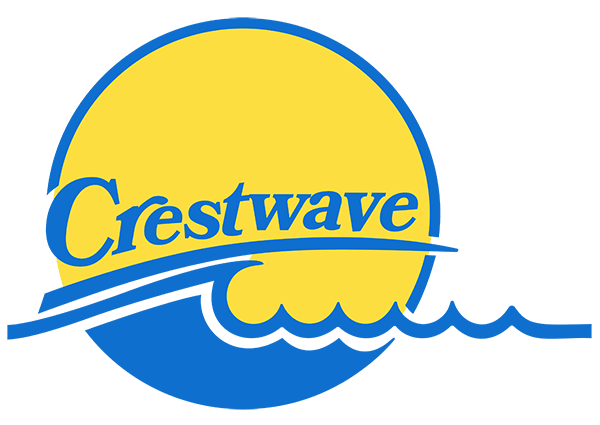
04 Aug Tenant Rights and Responsibilities for Renters in Long Beach, Huntington Beach, and Lakewood
Understanding your rights and responsibilities as a tenant is crucial for a successful rental experience in Long Beach, Huntington Beach, or Lakewood. It helps establish a positive rapport with your landlord and ensures a smooth tenancy period for both parties. At CrestWave Property Management, we’re committed to empowering renters by providing valuable insights into essential tenant rights and responsibilities, ensuring you have the knowledge to navigate the rental process confidently.
Our series of informative blog posts will delve into various aspects of tenant rights and responsibilities, such as understanding lease agreements and their stipulations, security deposit guidelines, and rent payment schedules. We’ll also discuss your rights to privacy within your rental property and the proper procedure for requesting maintenance and repairs.
Furthermore, it’s essential to be aware of the eviction process, including the legal reasons for evictions and the proper protocol for addressing complaints or disputes. In addition, our blogs will explore the significance of renter’s insurance and its benefits, as well as guidelines for subletting or adding roommates to your lease agreement.
Through these insightful blog posts, CrestWave Property Management aims to help you confidently navigate the rental landscape of Long Beach, Huntington Beach, and Lakewood by understanding the nuances of your rights and responsibilities as a renter. We believe that a well-informed tenant leads to a harmonious and mutually beneficial relationship with landlords and property managers.
Embark on a successful rental journey in Long Beach, Huntington Beach, and Lakewood by reading our comprehensive tenant rights and responsibilities guide. Let CrestWave Property Management be your trusted resource as you create a positive home environment that benefits everyone involved.
Our Guide on Tenant Rights
1. Lease Agreements and Security Deposits
Reading and understanding your lease agreement before signing is crucial as a tenant. The lease outlines the terms and conditions of your rental, including the rent amount, payment schedule, lease duration, rules, and restrictions. Make sure to discuss any uncertainties or concerns with your landlord or property manager, such as CrestWave Property Management.
Security deposits serve as insurance against potential property damages or unpaid rent. In California, the security deposit limit for unfurnished properties is twice the monthly rent, while furnished rentals can have up to three times the monthly rent. Upon vacating the premises, tenants must receive their security deposit, minus any lawful deductions, within 21 days. Always document the property’s condition at move-in and move-out to prevent potential disputes.
2. Rent Payment Guidelines and Renters’ Privacy
Paying your rent on time is a crucial tenant responsibility. Late or missing payments can lead to penalties, or even eviction, as outlined in your lease agreement. Establish an open line of communication with your landlord or property manager to discuss any financial difficulties promptly.
As a tenant, you have the right to privacy in your rented space. California law requires landlords to provide a 24-hour written notice before entering a tenant’s property, except for emergencies or authorized repairs. Other valid reasons for entry, with proper notice, include inspections, showing the property to potential tenants, or making necessary improvements.
3. Maintenance and Repair Responsibilities
Both tenants and landlords have responsibilities for property maintenance and repairs. Tenants must keep the property clean, dispose of garbage, and avoid causing intentional damage. Reporting necessary repairs and maintenance promptly to your landlord or property manager helps prevent bigger issues in the future.
On the other hand, landlords are responsible for ensuring the property is habitable, safe, and well-maintained. They must address issues such as structural defects, plumbing backups, faulty electrical systems, and pest infestations in a timely manner.
4. Evictions, Complaints, and Disputes
Evictions are a last resort for landlords when tenants violate the lease agreement or fail to pay rent. In California, evictions require a legal process, starting with a written notice such as a “3-Day Notice to Pay Rent or Quit” or a “3-Day Notice to Perform Covenant or Quit”, depending on the violation. Tenants have the opportunity to resolve the issue within the notice period. If the issue remains unresolved, the landlord can file an eviction lawsuit. As a tenant, it’s vital to familiarize yourself with the eviction process and your rights during that procedure.
If you have a complaint or dispute with your landlord, it’s advised to address the issue calmly and professionally. Begin by discussing the problem directly with your landlord or property manager. If that fails, consider utilizing mediation services or seeking legal advice when necessary.
Conclusion
Understanding and fulfilling your tenant rights and responsibilities are fundamental aspects of a successful rental experience for both tenants and landlords in Long Beach, Huntington Beach, and Lakewood. By being well-informed, you can contribute to creating a harmonious and mutually beneficial relationship with your landlord or property manager, ensuring a stress-free and enjoyable rental experience.
CrestWave Property Management is here to guide and support you throughout your search for houses for rent in Long Beach, Huntington Beach, and Lakewood. By offering resources and insights into essential tenant rights and responsibilities, we strive to empower renters and create an exceptional rental environment. Trust us to have your best interests at heart as you find the perfect rental property and thrive in your new community.
